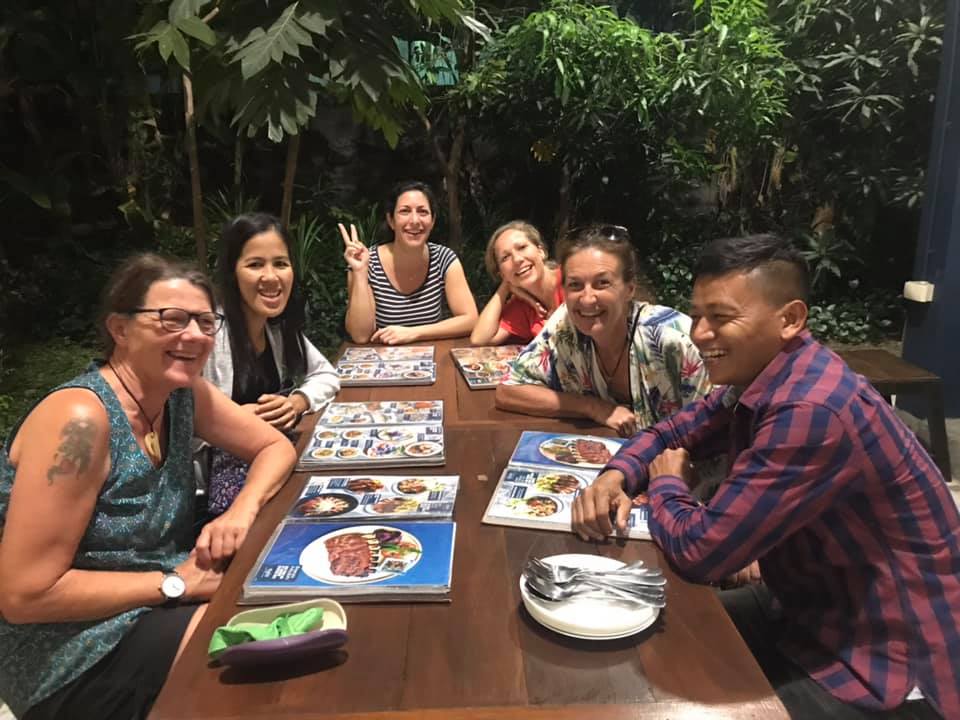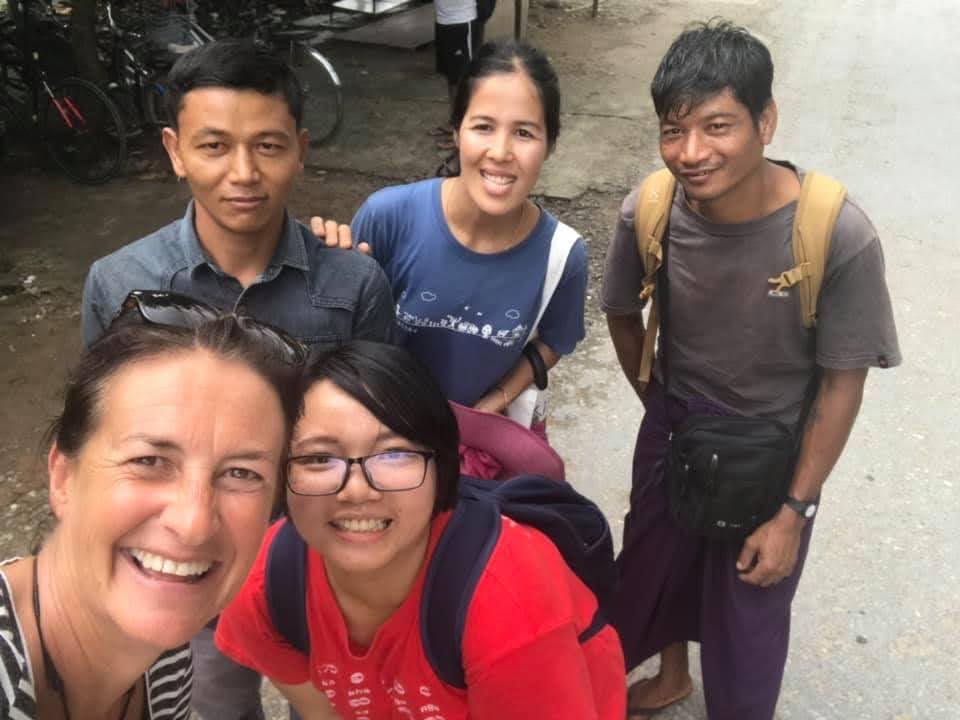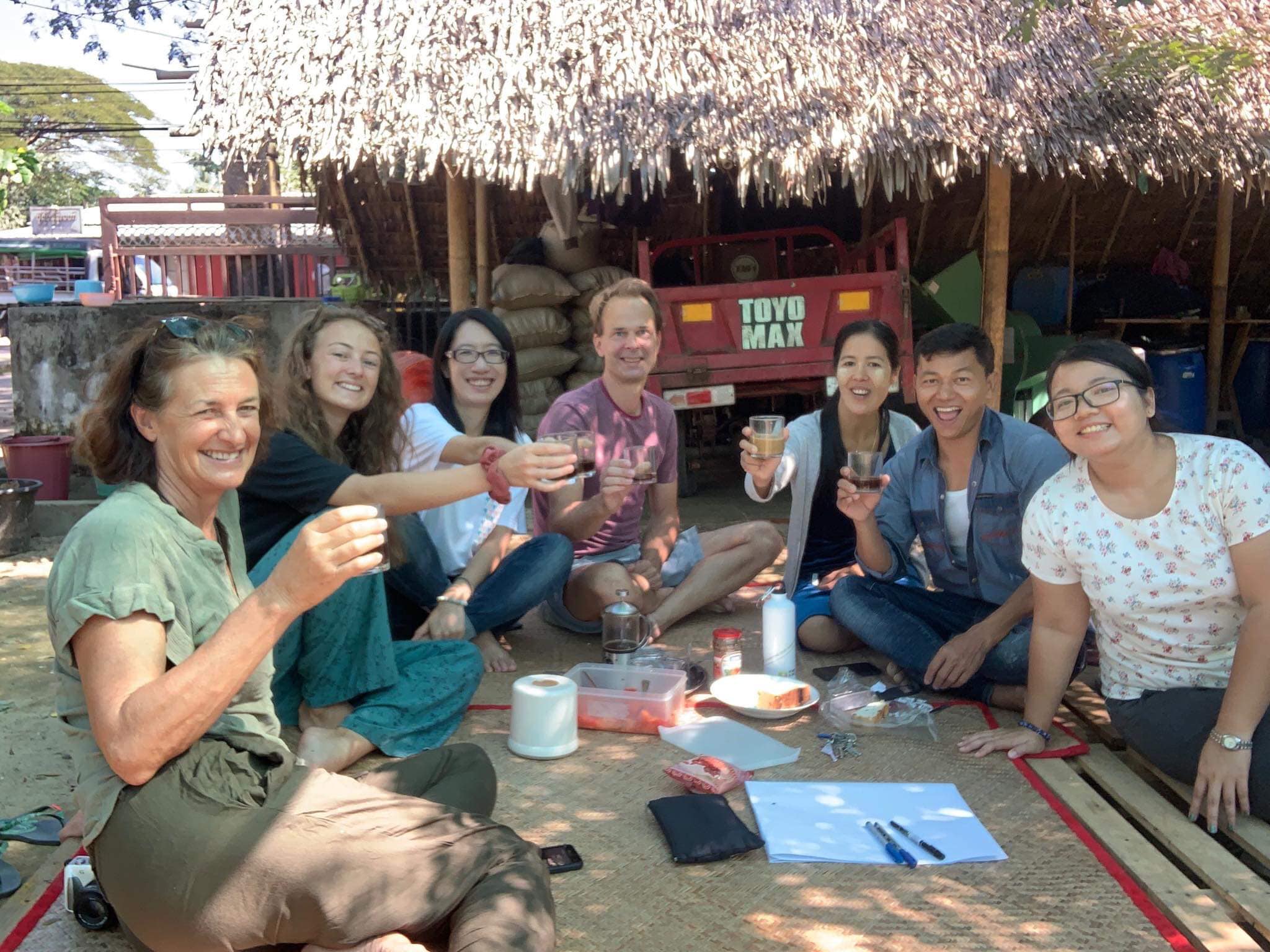



Myanmar is a beautiful country — but it is facing an environmental emergency. Critical to this is the climate impact of poor waste management. Every day in Yangon, home to more than 5 million people, some 2,500 to 3,000 tons of trash is sent to the city’s landfill sites. Three-quarters of that trash is organic waste which quickly rots in the hot weather. It releases huge amounts of CO2 and methane gases, making it a serious contributor to climate change and global warming.
Instead of sending organic waste to the landfills, we are introducing a sustainable new method called bokashi to transform the organic waste we produce every day into rich, living compost soil. It is so simple and easy that everyone can do it. Households, communities, schools, monasteries and local farmers.
With great passion and many years of experience working with organic waste and soil, the Bokashi Myanmar story began in March 2018.
A year later, in March 2019 we started Bokashi Myanmar Company Limited and set up our first yard in North Dagon inYangon. Our three co-founders are Jenny Harlen who runs Bokashi Sweden, Inda Aung Soe and Aye Aye Than. Our two global team members and bokashi experts are Stefania Cao from Bokashi Belgium and Claire Mummery from Bokashi New Zealand.
We are starting small but our vision of starting a #SoilRevolution is big. We believe that if every one of us takes a baby step to change the way we deal with organic waste, then together we will make a huge difference.
We want to contribute to a greener, cleaner, and healthier Myanmar!
We’ve had a lot of ups and downs, trial and error, laughter and tears, since we started Bokashi Myanmar. The one word we don’t use is failure: we learn from every experience we have. Today we are a passionate team of 11 working on three fronts. These are our strategies:
1. Develop a model that can be replicated in any location that will shift our perceived definition of food waste as trash to food waste as a resource:
We started our first bokashi yard in North Dagon, we make and are now making 20 tons of compost per month using our innovative, totally natural, and carbon-smart bokashi process. We collect organic waste daily from our local wet markets, and receive food waste from a number of restaurants, international schools, and hotels.
We’ve been developing our methods constantly over the past two years, so they will be as easy to use as possible. We now have models that work well for households, gardeners, schools, embassies, restaurants, hotels and monasteries. Every site has a different setup, but the basic approach is surprisingly similar and can be quickly adapted.
The bokashi methods we’ve developed are easy to use, cost-effective, and hygienic. They make it possible for everyone to produce bio-active compost soil from organic waste. It is a very workable model, which is gaining traction as waste management becomes a critical issue – for Yangon, for Myanmar, and for the world.
We’re working with a growing community of people wanting to help start a #SoilRevolution and help reduce the amount of organic waste sent to landfill. It is early days yet, but we have a strong feeling that the #SoilRevolution is unstoppable.
2. Establish community-based waste management:
We are working with a number of projects to help communities recycle their food and garden waste using the bokashi process. An example is a 2019 project to start food waste recycling in downtown Yangon. 80 households signed up for the project and we showed the residents how to make bokashi compost soil out of food waste. The goal: to create cleaner and greener back alleys.
We’re working in a number of other ways with community-based waste management, to divert organic material from landfill, to reduce the environmental impact of dry leaf burning, and to create a sustainable process of soil rehabilitation. In some cases the ongoing creation of fertile new soil will create opportunities for community farms and social enterprises based on compost, fertiliser, seedling and crop production.
3. Provide training that changes our perception of processing organic waste and why is it important to our wellbeing:
Many of our users are sceptical and scared before they try bokashi. They worry that it will be messy, smelly, and too much trouble. To help people get started, we run regular training courses for households, gardeners, school groups, and community groups – our aim is to make it comprehensive, but fun.
At our workshops, people learn how to do bokashi composting using the food and garden waste they have at hand. Our message includes the importance of regenerating the soil-food-soil loop in our daily lives, the necessity to rebuild organic soil carbon globally for future food security, and the importance of preserving the energy, nutrients and carbon in our organic resources. We also hope to share the joy of growing food, show how easy it can be done using good soil, motivate people to start conversations about nutrition levels in our own soil and food — and ultimately kickstart a #soilrevolution.
Now more than ever, it is time to change the way of processing organic waste. It relies on us to decide if the organic waste remains trash or become great soil to feed our beautiful country.
Join Bokashi Myanmar – together we can start a #SoilRevolution!
Our latest news:
- Community Gardening in MediaA beautiful little video with english text about one of our favourite projects in Myanmar. We started working with this underprivileged neighbourhood early on in our work, 2018 I guess it was and our team has been there regularly everContinue reading “Community Gardening in Media”
- What & Why of Our WorkKo Inda Aung Soe of Bokashi Myanmar talking about himself and why we do what we do at the BM team as a part of his scholarship application journey. Get selected or not is one thing, keeping trying every timeContinue reading “What & Why of Our Work”
- Clean to GreenTurn the waste into compost and grow vegetables that contribute to the well-being of the daily food consumption that we eat. This one is a leafy vegetable that we grow in the golden garden in 8miles of Yangon, the urbanContinue reading “Clean to Green”
